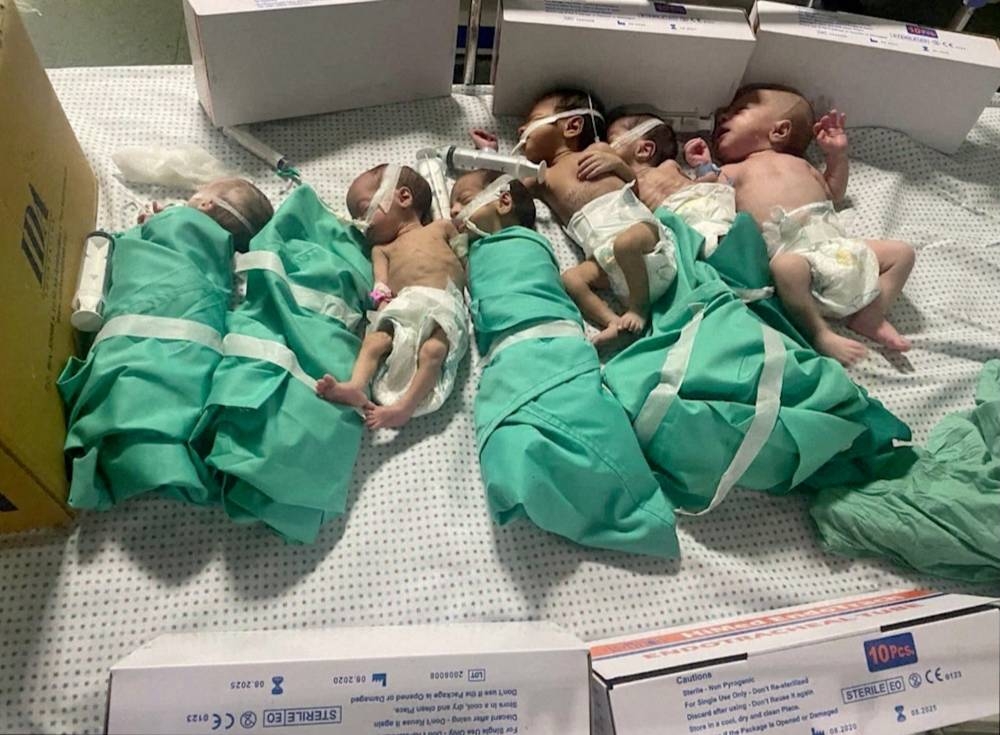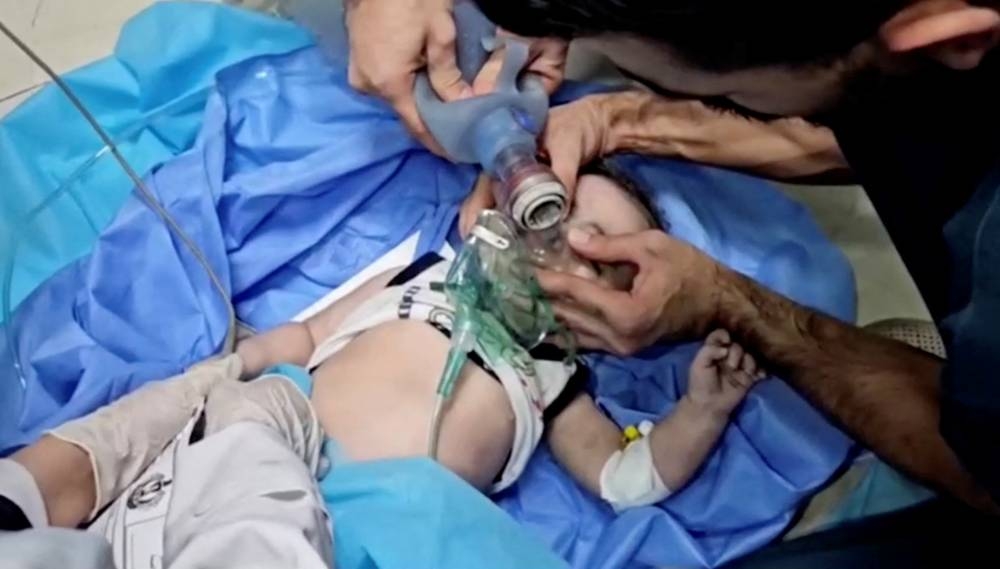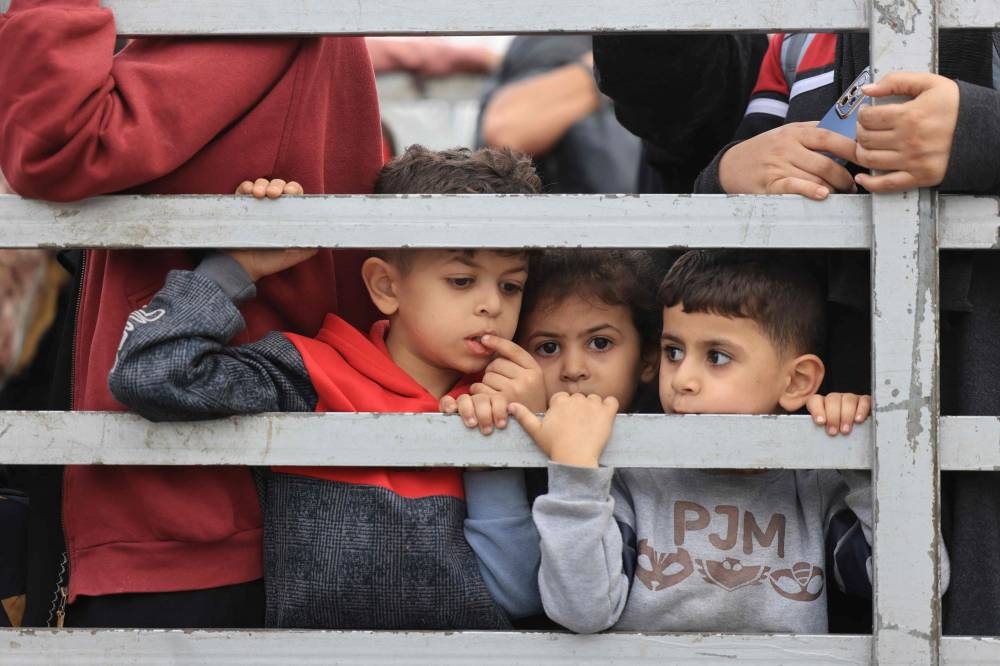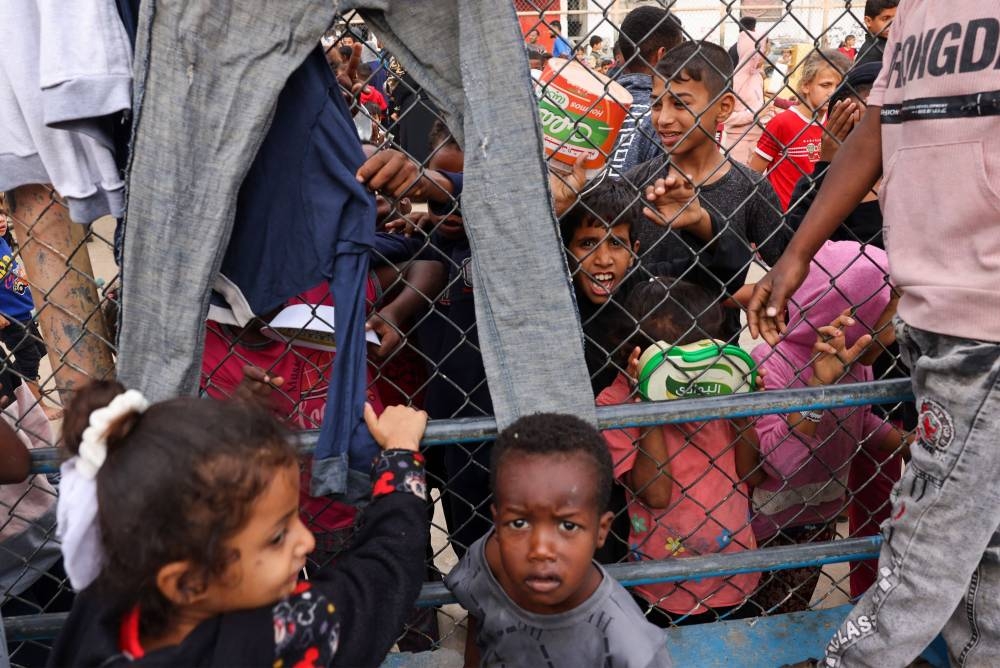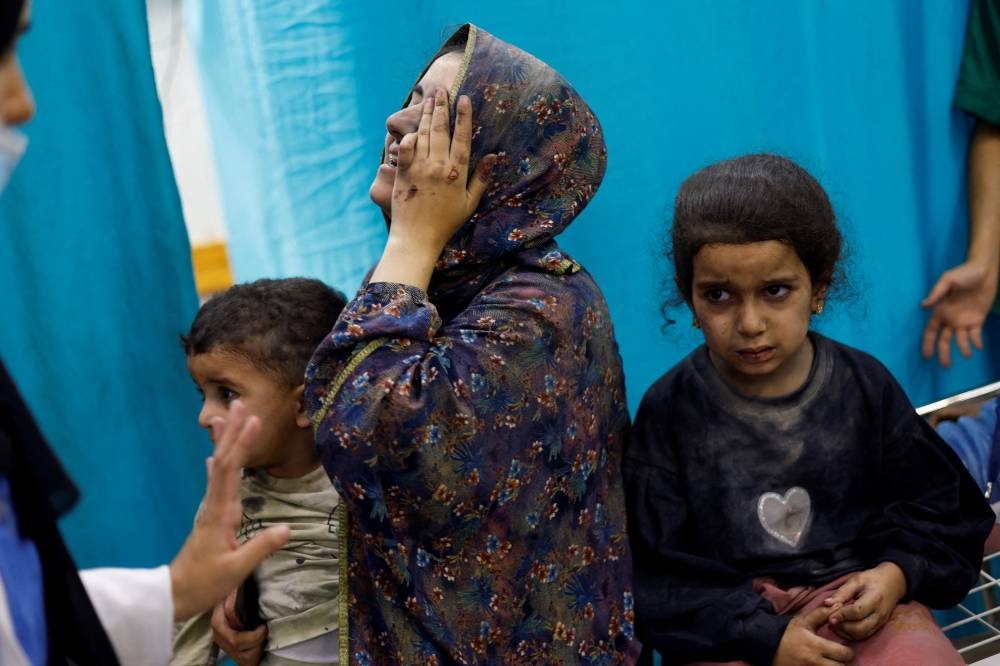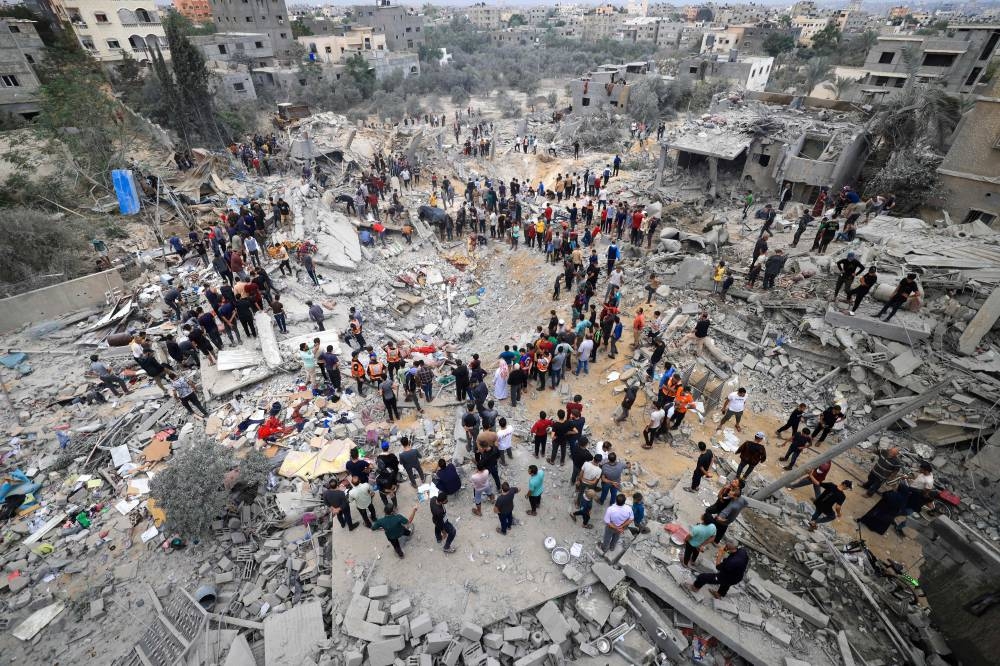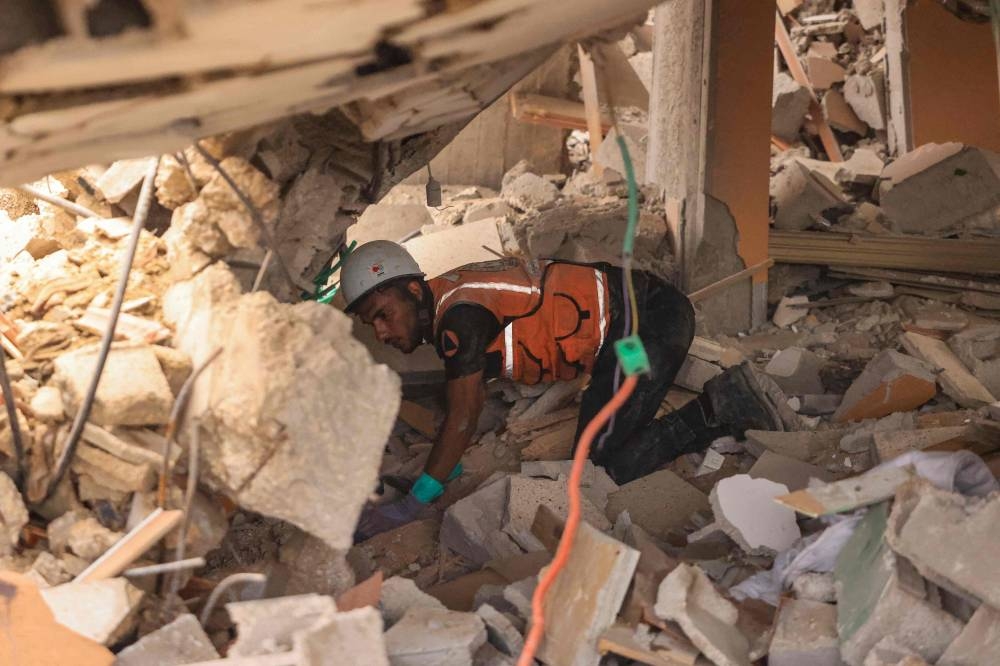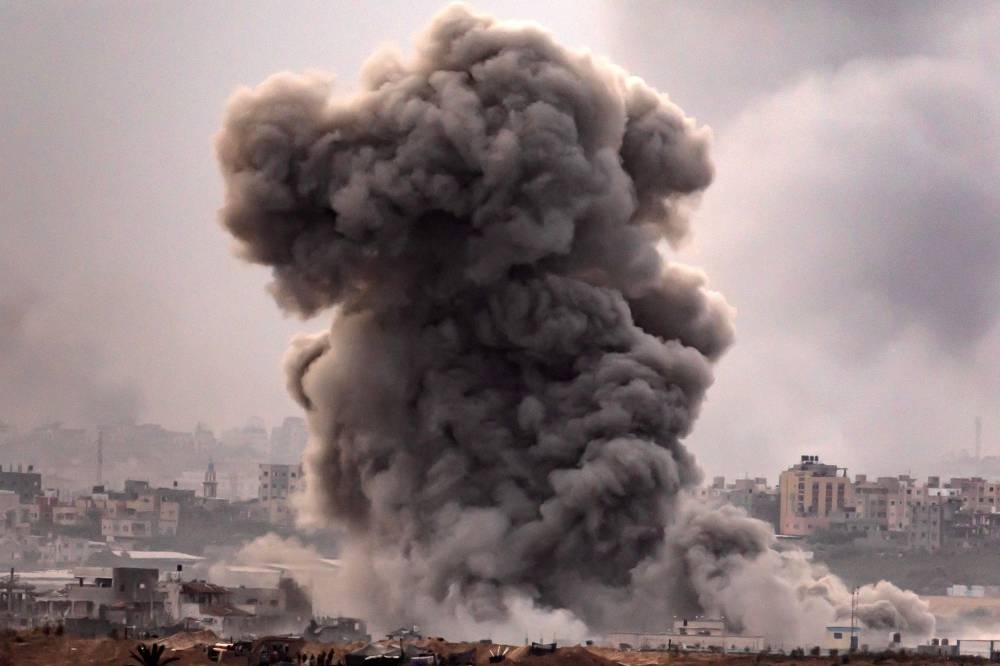- Death toll hits 11,180, including 3,100 women
- 1.6mn people -- about two-thirds of Gaza's population -- have been internally displaced
Despite growing calls for a ceasefire, Netanyahu has flatly rejected halting the fighting without release of the hostages.
White House National Security Council spokesman John Kirby told MSNBC that there has been "active negotiation" on a potential deal but kept mum on any details.
A Palestinian official in Gaza, speaking on condition of anonymity, said Netanyahu was to blame for the lack of progress on freeing captives.
"Netanyahu is responsible for the delay and obstacles in reaching a preliminary agreement on the release of several prisoners," the official told AFP.
Perched on trucks, crammed in cars, pulled by donkeys on carts and on foot, many thousands of Palestinians have fled Israeli army strikes on the territory squeezed between Israel, Egypt and the Mediterranean.
Almost 1.6mn people -- about two-thirds of Gaza's population -- have been internally displaced since October 7, according to the UN agency for Palestinian refugees UNRWA.
However, people arriving in the south were no longer able to find tents or improvised shelter, with some sleeping in the streets.
Strikes were also hitting buildings at the southern end of Gaza in Rafah, the area to which civilians have been urged to evacuate.
A strike in southern Bani Suheila destroyed a dozen houses Sunday, killing at least four people and wounding at least 30.
The conflict has been stoking regional tensions and fears of the war expanding.
Returning from a summit in the Saudi capital Riyadh, which condemned Israeli forces' offensive in Gaza, Turkish President Recep Tayyip Erdogan called for pressure on the United States to stop the war.
"The West should increase pressure on Israel... It's vital for us to secure a ceasefire," he told reporters.
Israel's top ally Washington has offered some criticism of the civilian toll but has voiced support for the offensive and opposed a ceasefire.

